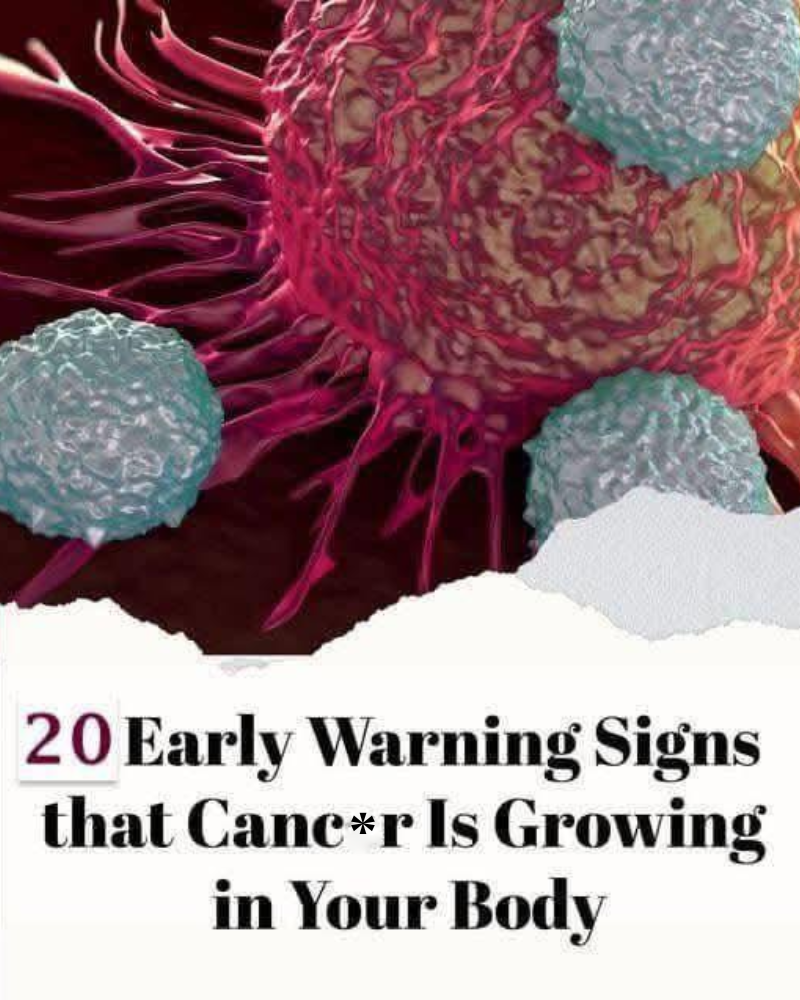
Your body has an extraordinary way of alerting you when something might be amiss, including potential early signs of cancer. Being attentive to these signals can help with early detection and timely medical treatment. If you observe any of the following early cancer warning signs, it’s essential to seek medical advice to determine whether further testing is required.
Subtle or Indirect Symptoms
Cancer doesn’t always present itself in obvious ways. Often, the body displays subtle signs that may not seem directly linked to a specific tumor or affected area. Identifying these early can significantly improve the chances of early detection.
Wheezing or Shortness of Breath
Many lung cancer patients recall this as one of their first symptoms, though it was often not initially associated with cancer.
Frequent Fevers or Infections
Leukemia can weaken the body’s immune system by producing abnormal white blood cells, leading to frequent fevers and infections.
Difficulty Swallowing
This is commonly associated with throat cancer, though in some cases, it may also be a sign of lung cancer.

Weakness and Fatigue
Fatigue is a prevalent symptom of cancer, but it’s most concerning when combined with other early warning signs.
Feeling Full and Unable to Eat
This could indicate ovarian cancer, particularly when paired with a persistent loss of appetite.
Physical Changes
Cancer can also cause visible changes in the body. While these changes may vary depending on the type and stage of cancer, they often serve as important clues for early detection.
Rectal Bleeding or Blood in Stool
A common warning sign of colorectal cancer, this symptom should prompt immediate medical attention.
Lumps in the Neck, Underarms, or Groin
Swollen lymph nodes may signal changes in the lymphatic system, potentially indicating cancer.
Excessive Bruising or Unstoppable Bleeding
Unexplained bruising or bleeding might suggest abnormalities in red blood cell or platelet function, which are often linked to leukemia.
Bloating or Sudden Abdominal Weight Gain
Persistent bloating is frequently reported as an early symptom of ovarian cancer.

Unexplained Weight Loss
Sudden, significant weight loss may indicate colon or digestive cancers. It could also occur when cancer has spread to the liver.
Red, Sore, or Swollen Breasts
These symptoms may point to inflammatory breast cancer. Additionally, a flattened or inverted nipple can be a sign of concern.
Pain-Related Symptoms
Persistent pain in specific areas of the body may also be indicative of cancer. Recognizing these pain-related symptoms can guide further medical evaluation.
Heavy or Painful Periods, or Bleeding Between Periods
This symptom is often associated with endometrial or uterine cancer.
Chronic Cough or Chest Pain
Leukemia and lung cancer can cause symptoms that mimic bronchitis, such as a persistent cough or chest pain.

Pelvic or Abdominal Pain
Ovarian cancer is commonly linked to cramping or pain in the pelvic area. Similarly, leukemia can cause abdominal pain due to an enlarged spleen.
Pain in the Back or Lower Right Side
This is an early warning sign of liver cancer. Additionally, back pain can occur in breast cancer cases where tumors press against the chest or spread to the spine.
Upset Stomach or Persistent Stomach Pain
Frequent stomach discomfort or cramps may indicate colorectal cancer.
Steps to Reduce Your Risk
If you notice any of these potential cancer symptoms, don’t panic—but do consult a doctor to rule out serious conditions. Early detection is critical in improving outcomes. Alongside regular check-ups, adopting a healthy lifestyle, maintaining optimal vitamin D levels, and minimizing exposure to environmental toxins are effective strategies for cancer prevention.
Paying attention to your body and taking proactive steps can make all the difference. Early action saves lives.

